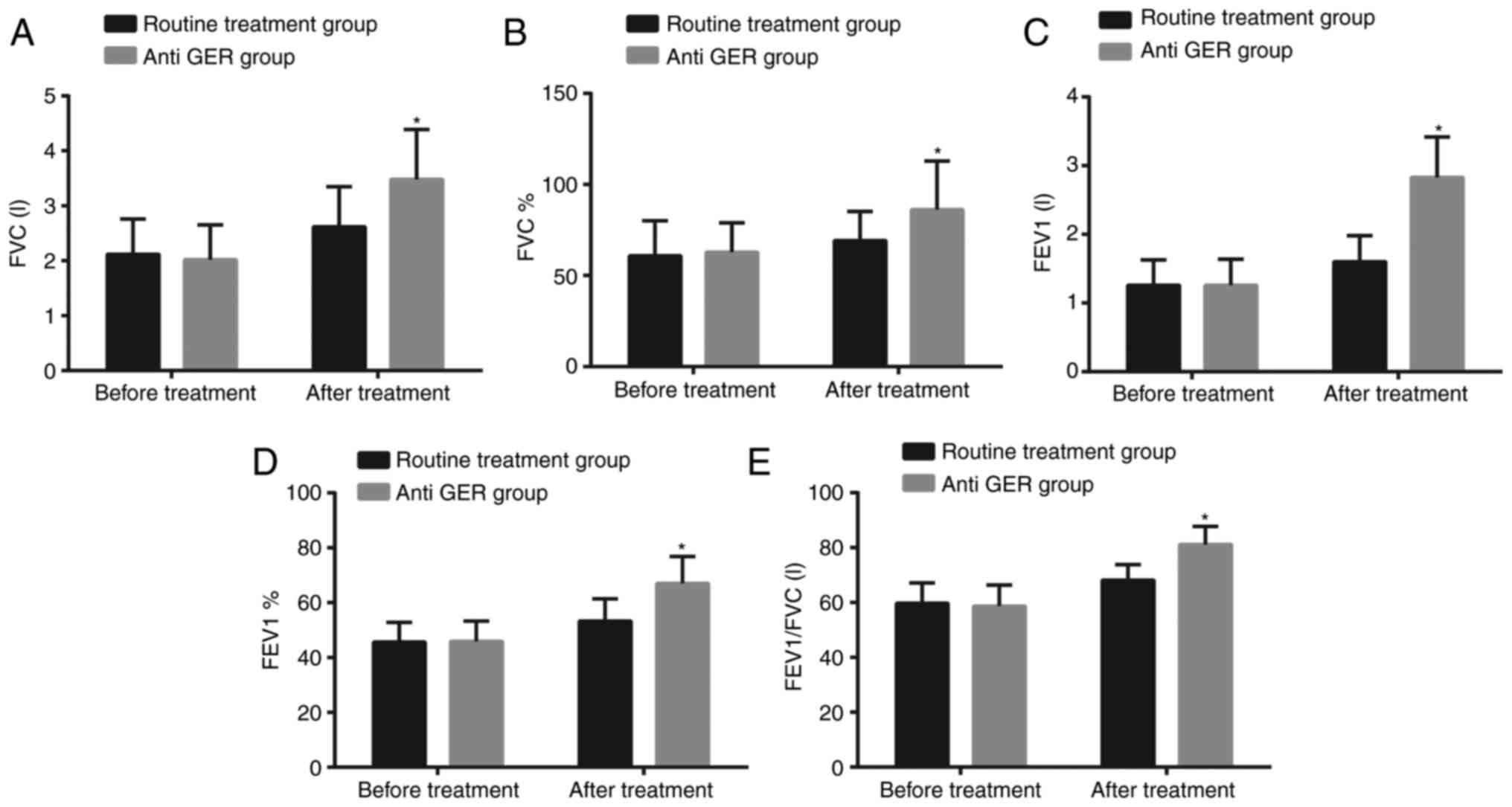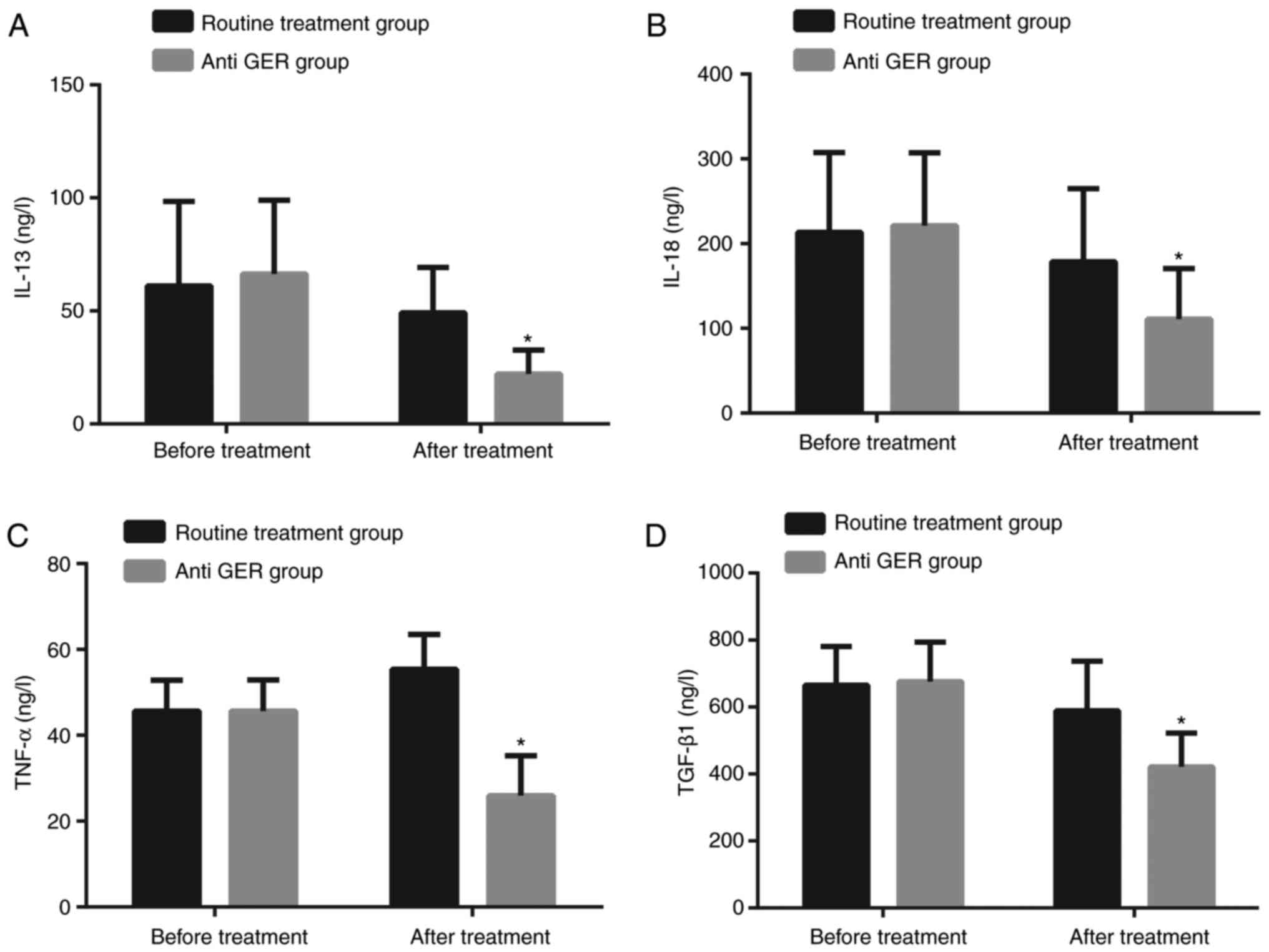|
1
|
Delzell JE Jr: Common lung conditions:
Chronic obstructive pulmonary disease. FP Essent. 409:23–31.
2013.PubMed/NCBI
|
|
2
|
Vestbo J, Hurd SS, Agusti AG, Jones PW,
Vogelmeier C, Anzueto A, Barnes PJ, Fabbri LM, Martinez FJ,
Nishimura M, et al: Global strategy for the diagnosis, management,
and prevention of chronic obstructive pulmonary disease: GOLD
executive summary. Am J Respir Crit Care Med. 187:347–365. 2013.
View Article : Google Scholar : PubMed/NCBI
|
|
3
|
Parameswaran Iyer G and Murphy TF: Chronic
obstructive pulmonary disease: Role of bacteria and updated guide
to antibacterial selection in the older patient. Drugs Aging.
26:985–995. 2009. View Article : Google Scholar : PubMed/NCBI
|
|
4
|
Lee H, Kim J and Tagmazyan K: Treatment of
stable chronic obstructive pulmonary disease: The GOLD guidelines.
Am Fam Physician. 88(655–663): 663B–F. 2013.
|
|
5
|
Gan WQ, Man SF, Senthilselvan A and Sin
DD: Association between chronic obstructive pulmonary disease and
systemic inflammation: A systematic review and a meta-analysis.
Thorax. 59:574–580. 2004. View Article : Google Scholar : PubMed/NCBI
|
|
6
|
Casanova C, Baudet JS, del Valle Velasco
M, Martin JM, Aguirre-Jaime A, de Torres JP and Celli BR: Increased
gastro-oesophageal reflux disease in patients with severe COPD. Eur
Respir J. 23:841–845. 2004. View Article : Google Scholar : PubMed/NCBI
|
|
7
|
Rogha M, Behravesh B and Pourmoghaddas Z:
Association of gastroesophageal reflux disease symptoms with
exacerbations of chronic obstructive pulmonary disease. J
Gastrointestin Liver Dis. 19:253–256. 2010.PubMed/NCBI
|
|
8
|
Liang BM and Feng YL: Association of
gastroesophageal reflux disease symptoms with stable chronic
obstructive pulmonary disease. Lung. 190:277–282. 2012. View Article : Google Scholar : PubMed/NCBI
|
|
9
|
Wang AJ, Liang MJ, Jiang AY, Lin JK, Xiao
YL, Peng S, Chen J, Wen WP and Chen MH: Gastroesophageal and
laryngopharyngeal reflux detected by 24-hour combined impedance and
pH monitoring in healthy Chinese volunteers. J Dig Dis. 12:173–180.
2011. View Article : Google Scholar : PubMed/NCBI
|
|
10
|
Yeh AM and Golianu B: Integrative
treatment of reflux and functional dyspepsia in children. Children
(Basel). 1:119–133. 2014.PubMed/NCBI
|
|
11
|
Ingebrigtsen TS, Marott JL, Vestbo J,
Nordestgaard BG, Hallas J and Lange P: Gastro-esophageal reflux
disease and exacerbations in chronic obstructive pulmonary disease.
Respirology. 20:101–107. 2015. View Article : Google Scholar : PubMed/NCBI
|
|
12
|
Benson VS, Müllerová H, Vestbo J, Wedzicha
JA, Patel A and Hurst JR: Evaluation of COPD Longitudinally to
Identify Predictive Surrogate Endpoints (ECLIPSE) Investigators:
Associations between gastro-oesophageal reflux, its management and
exacerbations of chronic obstructive pulmonary disease. Respir Med.
109:1147–1154. 2015. View Article : Google Scholar : PubMed/NCBI
|
|
13
|
Lundell LR, Dent J, Bennett JR, Blum AL,
Armstrong D, Galmiche JP, Johnson F, Hongo M, Richter JE, Spechler
SJ, et al: Endoscopic assessment of oesophagitis: Clinical and
functional correlates and further validation of the Los Angeles
classification. Gut. 45:172–180. 1999. View Article : Google Scholar : PubMed/NCBI
|
|
14
|
Holub JL, Silberg DG, Michaels LC,
Williams JL, Morris CD and Eisen G: Acid-related upper endoscopy
findings in patients with diabetes versus non-diabetic patients.
Dig Dis Sci. 55:2853–2859. 2010. View Article : Google Scholar : PubMed/NCBI
|
|
15
|
Kumbhari V, Familiari P, Bjerregaard NC,
Pioche M, Jones E, Ko WJ, Hayee B, Cali A, Ngamruengphong S, Mion
F, et al: Gastroesophageal reflux after peroral endoscopic myotomy:
A multicenter case-control study. Endoscopy. 49:634–642. 2017.
View Article : Google Scholar : PubMed/NCBI
|
|
16
|
Calik-Kutukcu E, Savci S, Saglam M,
Vardar-Yagli N, Inal-Ince D, Arikan H, Aribas Z, Ozer O,
Bosnak-Guclu M and Coplu L: A comparison of muscle strength and
endurance, exercise capacity, fatigue perception and quality of
life in patients with chronic obstructive pulmonary disease and
healthy subjects: A cross-sectional study. BMC Pulm Med. 14:62014.
View Article : Google Scholar : PubMed/NCBI
|
|
17
|
Williams JE, Green RH, Warrington V,
Steiner MC, Morgan MD and Singh SJ: Development of the i-BODE:
Validation of the incremental shuttle walking test within the BODE
index. Respir Med. 106:390–396. 2012. View Article : Google Scholar : PubMed/NCBI
|
|
18
|
Kim J, Lee JH, Kim Y, Kim K, Oh YM, Yoo
KH, Rhee CK, Yoon HK, Kim YS, Park YB, et al: Association between
chronic obstructive pulmonary disease and gastroesophageal reflux
disease: A national cross-sectional cohort study. BMC Pulm Med.
13:512013. View Article : Google Scholar : PubMed/NCBI
|
|
19
|
Gadel AA, Mostafa M, Younis A and Haleem
M: Esophageal motility pattern and gastro-esophageal reflux in
chronic obstructive pulmonary disease. Hepatogastroenterology.
59:2498–2502. 2012.PubMed/NCBI
|
|
20
|
Takada K, Matsumoto S, Kojima E, Iwata S,
Okachi S, Ninomiya K, Morioka H, Tanaka K and Enomoto Y:
Prospective evaluation of the relationship between acute
exacerbations of COPD and gastroesophageal reflux disease diagnosed
by questionnaire. Respir Med. 105:1531–1536. 2011. View Article : Google Scholar : PubMed/NCBI
|
|
21
|
Sakae TM, Pizzichini MM, Teixeira PJ,
Silva RM, Trevisol DJ and Pizzichini E: Exacerbations of COPD and
symptoms of gastroesophageal reflux: A systematic review and
meta-analysis. J Bras Pneumol. 39:259–271. 2013.(In English,
Portuguese). View Article : Google Scholar : PubMed/NCBI
|
|
22
|
Pacheco-Galván A, Hart SP and Morice AH:
Relationship between gastro-oesophageal reflux and airway diseases:
The airway reflux paradigm. Arch Bronconeumol. 47:195–203. 2011.
View Article : Google Scholar : PubMed/NCBI
|
|
23
|
Phulpoto MA, Qayyum S, Rizvi N and
Khuhawar SM: Proportion of gastroesophageal reflux symptoms in
patients with chronic obstructive pulmonary disease. J Pak Med
Assoc. 55:276–279. 2005.PubMed/NCBI
|
|
24
|
Oh CK, Geba GP and Molfino N:
Investigational therapeutics targeting the IL-4/IL-13/STAT-6
pathway for the treatment of asthma. Eur Respir Rev. 19:46–54.
2010. View Article : Google Scholar : PubMed/NCBI
|
|
25
|
Hashimoto K, Sheller JR, Morrow JD,
Collins RD, Goleniewska K, O'Neal J, Zhou W, Ji S, Mitchell DB,
Graham BS and Peebles RS Jr: Cyclooxygenase inhibition augments
allergic inflammation through CD4-dependent, STAT6-independent
mechanisms. J Immunol. 174:525–532. 2005. View Article : Google Scholar : PubMed/NCBI
|
|
26
|
Crosby LM and Waters CM: Epithelial repair
mechanisms in the lung. Am J Physiol Lung Cell Mol Physiol.
298:L715–L731. 2010. View Article : Google Scholar : PubMed/NCBI
|
|
27
|
van de Veerdonk FL, Netea MG, Dinarello CA
and Joosten LA: Inflammasome activation and IL-1β and IL-18
processing during infection. Trends Immunol. 32:110–116. 2011.
View Article : Google Scholar : PubMed/NCBI
|
|
28
|
Dima E, Koltsida O, Katsaounou P, Vakali
S, Koutsoukou A, Koulouris NG and Rovina N: Implication of
Interleukin (IL)-18 in the pathogenesis of chronic obstructive
pulmonary disease (COPD). Cytokine. 74:313–317. 2015. View Article : Google Scholar : PubMed/NCBI
|
|
29
|
Johnson PR, Burgess JK, Ge Q, Poniris M,
Boustany S, Twigg SM and Black JL: Connective tissue growth factor
induces extracellular matrix in asthmatic airway smooth muscle. Am
J Respir Crit Care Med. 173:32–41. 2006. View Article : Google Scholar : PubMed/NCBI
|
|
30
|
von Haehling S, Hopkinson NS, Polkey MI,
Niethammer M, Anker SD and Genth-Zotz S: Elevated TNFalpha
production in whole blood in patients with severe COPD: The
potential link to disease severity. Wien Klin Wochenschr.
121:303–308. 2009. View Article : Google Scholar : PubMed/NCBI
|
|
31
|
Eagan TM, Ueland T, Wagner PD, Hardie JA,
Mollnes TE, Damås JK, Aukrust P and Bakke PS: Systemic inflammatory
markers in COPD: Results from the Bergen COPD cohort study. Eur
Respir J. 35:540–548. 2010. View Article : Google Scholar : PubMed/NCBI
|
|
32
|
Shahabi S, Rasmi Y, Jazani NH and Hassan
ZM: Protective effects of Helicobacter pylori against
gastroesophageal reflux disease may be due to a neuroimmunological
anti-inflammatory mechanism. Immunol Cell Biol. 86:175–178. 2008.
View Article : Google Scholar : PubMed/NCBI
|
|
33
|
Polkey MI, Spruit MA, Edwards LD, Watkins
ML, Pinto-Plata V, Vestbo J, Calverley PM, Tal-Singer R, Agusti A,
Bakke PS, et al: Six-minute-walk test in chronic obstructive
pulmonary disease: Minimal clinically important difference for
death or hospitalization. Am J Respir Crit Care Med. 187:382–386.
2013. View Article : Google Scholar : PubMed/NCBI
|
|
34
|
Hernandes NA, Wouters EF, Meijer K,
Annegarn J, Pitta F and Spruit MA: Reproducibility of 6-minute
walking test in patients with COPD. Eur Respir J. 38:261–267. 2011.
View Article : Google Scholar : PubMed/NCBI
|
















